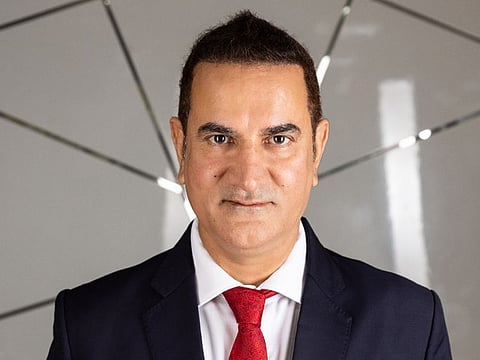Global shipping costs remain a major hurdle for food commodities
Supply chain problems are no longer as intense, but something needs to be done on costs

Dubai: While food and farming supply chains have recovered from pandemic disruptions, higher shipping costs remain a main hurdle for importers.
“Apart from the higher logistical costs, there are absolutely no concerns over the food supply chain,” said Harish Tahiliani, Managing Director of Arab & India Spices. Importers saw a dramatic increase in shipping costs after the onset of pandemic. This cost will be ultimately passed onto the consumers in the form of higher prices of goods and commodities.
“In the initial stages, we witnessed acute shortage of containers that resulted in disruptions throughout the food industry,” said Tahiliani. “However, the availability of the containers has normalized in a lot of countries, easing out the logistics.”
Higher logistical costs are now part of the ‘new normal’ and that it had affected all industries equally. As for specific food commodities coming from India, “There have been no supply constraints from India - even when the farmers were in protest there was hardly any disruption as the protests were held by a comparatively small section of farmers and limited to some cities in India,” said Tahiliani.
Farmers in India’s leading agricultural states such as Punjab and Haryana held a year-long protest starting in 2020 when the government proposed three laws aimed at liberalizing the sector. The protests were finally called off last month after the government repealed the contentious laws.
Expansion moves
Arab & India Spices operates one of the Middle East’s largest food-related production facility in Ajman. It now plans to reach out directly to consumers. The company entered UAE’s retail space last year with the launch of its own labels – ‘RK Pulses & Spices’ and ‘Soorya’. “We started our B2C (business to consumer) division and are now directly approaching consumers,” said Tahiliani. “We also started manufacturing and distributing ready-to-eat products and are planning to widen this range.”
Tahiliani believes that more consumers are shifting to a vegetarian diet and that will benefit the agriculture industry. “Ever since the pandemic, we are seeing changes in the lifestyle that people follow - one of the major changes is the food habits,” he said. “It is evident that we are finding a slow but steady shift from non–vegetarian to vegetarian diet in lifestyles. Pulses are a major source of protein in a vegetarian diet and we can expect a definite increase in demand.”



